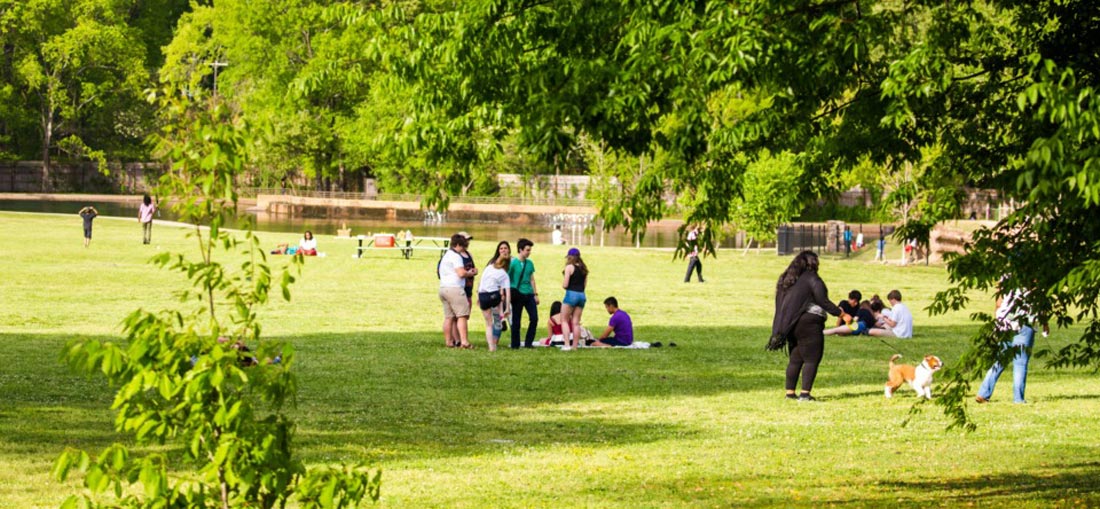The first Earth Day was celebrated on April 22, 1970. A bipartisan idea championed by the late U.S. Sen. Gaylord Nelson, a Democrat from Wisconsin, and former U.S. Rep. Pete McCloskey, a Republican from California, the day encouraged people to organize and advocate for better environmental stewardship. Millions of Americans spoke out against industrial pollution, species extinction and deforestation. Many felt that their voices were being heard for the first time.
Almost 50 years later, we still observe Earth Day. And despite the progress we’ve made, we still face daunting challenges. Climate change, urban sprawl and over-development, among many other issues, are enormous environmental threats.
These challenges can sometimes feel overwhelming. But localizing our efforts is one way to sustain our hope for a better planet. While backing large-scale policies and actions to fight things like climate change and pollution is critical, we need to connect with and care for the earth on a local level, too.
Several prominent environmentalists and conservationists promote this idea. Henry David Thoreau, Aldo Leopold and Rachel Carson reasoned that a close-knit relationship with a forest or a farm, a pond or a park makes us better environmental stewards. Similarly, Wendell Berry writes about immersing ourselves in a place so that we can cultivate affection for it. This hard-earned affection, he argues, isn’t a touchy-feely emotion. It’s a practical virtue that leads to positive action. In nurturing affection for a small plot of earth, we feel an obligation to care for it.
One place in Memphis where people can get acquainted with and nurture affection for the natural world is Overton Park. After taking dozens of walks through the Old Forest or spending countless afternoons on the Greensward, we start to become familiar with the park. We begin to recognize trees along the limestone loop, and we grow familiar with the wildlife that call this place home. When we know the park that well, we grow to love it. And because of this love, we care for it.
On my own walks through the park, I’ve watched strangers pick up litter that’s not their own. I’ve seen scores of Memphians volunteer on Saturday mornings to spread mulch in the dog park. I’ve known experienced runners who introduced new patrons to the trail system so that more people can connect with the park. More than any other virtue, it’s affection that drives these actions.
[/et_pb_text][/et_pb_column][/et_pb_row][/et_pb_section]
